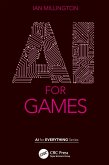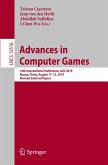Drawing on extensive research, this book explores the techniques that old computer games used to run on tightly-constrained platforms. Retrogame developers faced incredible challenges of limited space, computing power, rudimentary tools, and the lack of homogeneous environments.
Using examples from over 100 retrogames, this book examines the clever implementation tricks that game designers employed to make their creations possible, documenting these techniques that are being lost. However, these retrogame techniques have modern analogues and applications in general computer systems, not just games, and this book makes these contemporary connections. It also uses retrogames' implementation to introduce a wide variety of topics in computer systems including memory management, interpretation, data compression, procedural content generation, and software protection.
Retrogame Archeology targets professionals and advanced-level students in computer science, engineering, andmathematics but would also be of interest to retrogame enthusiasts, computer historians, and game studies researchers in the humanities.
Using examples from over 100 retrogames, this book examines the clever implementation tricks that game designers employed to make their creations possible, documenting these techniques that are being lost. However, these retrogame techniques have modern analogues and applications in general computer systems, not just games, and this book makes these contemporary connections. It also uses retrogames' implementation to introduce a wide variety of topics in computer systems including memory management, interpretation, data compression, procedural content generation, and software protection.
Retrogame Archeology targets professionals and advanced-level students in computer science, engineering, andmathematics but would also be of interest to retrogame enthusiasts, computer historians, and game studies researchers in the humanities.
"The author does a pretty good job of taking a look at this most interesting field that many users, gamers, and programmers can identify with ... . the book can be of interest also to nonprogrammers, retrogame enthusiasts, historians and researchers, and even just to readers who can recall games from their childhood and develop nostalgia just by reading it. With the use of graphs, tables, figures, and screen captures, the world of retrogames is brought to life." (Cecilia G. Manrique, Computing Reviews, computingreviews.com, October, 2016)








